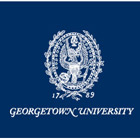- News and articles
- Find usIDP AustraliaIDP BahrainIDP BangladeshIDP CambodiaIDP CanadaIDP ChinaIDP EgyptIDP GhanaIDP Hong KongIDP IndiaIDP IndonesiaIDP IranIDP JordanIDP KenyaIDP KoreaIDP KuwaitIDP LebanonIDP MalaysiaIDP MauritiusIDP Middle EastIDP NepalIDP New ZealandIDP NigeriaIDP OmanIDP PakistanIDP PhilippinesIDP Saudi ArabiaIDP SingaporeIDP Sri LankaIDP Taiwan, ChinaIDP ThailandIDP TurkeyIDP UAEIDP VietnamIDP Corporate
- Social
- English
- Where we operate
- Courses
- Scholarships
- IELTS
- About IDP
- Student Essentials
- News and articles
- Find us
- Find us
- Find nearest IDP offices
- IDP Australia
- IDP Bahrain
- IDP Bangladesh
- IDP Cambodia
- IDP Canada
- IDP China
- IDP Egypt
- IDP Ghana
- IDP Hong Kong
- IDP India
- IDP Indonesia
- IDP Iran
- IDP Jordan
- IDP Kenya
- IDP Korea
- IDP Kuwait
- IDP Lebanon
- IDP Malaysia
- IDP Mauritius
- IDP Middle East
- IDP Nepal
- IDP New Zealand
- IDP Nigeria
- IDP Oman
- IDP Pakistan
- IDP Philippines
- IDP Saudi Arabia
- IDP Singapore
- IDP Sri Lanka
- IDP Taiwan, China
- IDP Thailand
- IDP Turkey
- IDP UAE
- IDP Vietnam
- IDP Corporate
- Social
- Language Switcher
- IDP Education /
- Colleges and Universities /
- United States /
- Georgetown University /
- Doctor of Philosophy in His...


Location
United States
Qualification
Ph.D.
Fees
USD58848
(2025)
Duration
6 Semester(s)
Next intake
18 August 2025
Entry Score
7.0
IELTSCourse info
Students at Georgetown have long incorporated Africa-related topics into their research and courses of study within the Atlantic, U.S. Diplomatic, and Transregional fields. The Africa field was established in 2015 to take advantage of a convergence of opportunities: the position of African History as a field of growth within the discipline of History in higher education and Georgetown's distinctive advantages as a place to study African History.
The department's Africanist faculty enjoy complementary and overlapping chronological, regional, and thematic specializations. Meredith McKittrick researches 19th- and 20th-century southern Africa, with a focus on Namibia, South Africa, Botswana, and Angola. She is interested in histories of the environment, gender, Christianity, settler colonialism, decolonization, and comparative race relations. Kathryn de Luna studies precolonial central Africa, extending into the histories of eastern and southern Africa and across millennia through her specialization in historical linguistics. She is interested in historical approaches to topics like subsistence, mobility, emotions, senses, environments, and technology as well as unconventional historical methodologies.
- Scholarships
- Internships
Course fees are indicative and should be used as a guide. to get an accurate price.
Duration: 6 Semester(s)
Fees: USD58848
| Intake | Location |
|---|---|
| Fall (August), 2025 | Washington |
| Fall (August), 2026 | Washington |
Entry requirements for Georgetown University
Applications for PhD admission include:
a 500-word, double spaced statement of purpose,
a substantive sample of work (research papers preferred, maximum of 50 pages, if you are excerpting a larger work, please provide a cover page explaining the selection and larger context),
unofficial transcripts from any and all college and universities attended (see note below on unofficial transcripts),
GRE General Test scores (optional),
TOEFL/IELTS where applicable (see note below on language proficiency),
and three letters of recommendation.
Resume/CV
TOEFL/IELTS (if applicable)
TOEFL = 80 minimum
IELTS = 7.0 minimum
Application Deadline
The application deadline isn't available Speak to an IDP counsellor for more detailed information
Further information
If you aren't eligible for the above entry requirements, you might ant to explore pathway options at Georgetown University. If you want to find out more, speak to our counsellors.
THE World Ranking
201st / 1250
THE World RankingWhat our students think
We’ve haven’t received any reviews for this institution yet.
Recommended for you
- THE World Ranking:31
- Ph.D.
- Evanston , United States
- Next intake:09/2025
- Entry Score: IELTS 6.0
- USD74756 (2025)
- THE World Ranking:31
- Ph.D.
- Evanston , United States
- Next intake:09/2025
- Entry Score: IELTS 6.0
- USD74756 (2025)
- THE World Ranking:58
- Ph.D.
- Providence , United States
- Next intake:09/2025
- Entry Score: IELTS 7.0
- USD68612 (2025)
- THE World Ranking:58
- Ph.D.
- Providence , United States
- Next intake:09/2025
- Entry Score: IELTS 7.0
- USD68612 (2025)
- THE World Ranking:58
- Ph.D.
- Providence , United States
- Next intake:09/2025
- Entry Score: IELTS 7.0
- USD68612 (2025)
- THE World Ranking:58
- Ph.D.
- Providence , United States
- Next intake:09/2025
- Entry Score: IELTS 7.0
- USD68612 (2025)
- THE World Ranking:58
- Ph.D.
- Providence , United States
- Next intake:09/2025
- Entry Score: IELTS 7.0
- USD68612 (2025)
- THE World Ranking:58
- Ph.D.
- Providence , United States
- Next intake:09/2025
- Entry Score: IELTS 7.0
- USD68612 (2025)
Your action plan
Step 1
Shortlist your courses
Choose the best three courses you’re most likely to pursue.
Step 2
Check your eligibility
Get an instant in-principle offer for courses with the IDP FastLane tag.
Step 3
Apply through IDP Live
Fill out the form once and use it to apply to multiple courses.
How does IDP FastLane work?
With the FastLane 'Offer in Principle', you'll know in minutes if you'll be accepted!
Select an institution and course
Create your academic profile
Submit your application for an 'Offer in Principle'
Your chosen institution(s) will send you a decision in minutes!
Get ready to apply with an expert counsellor




